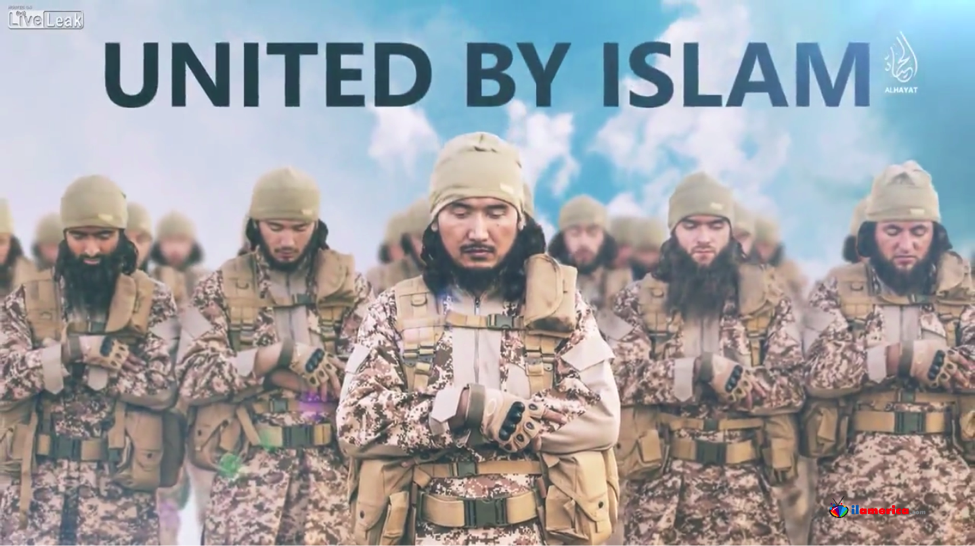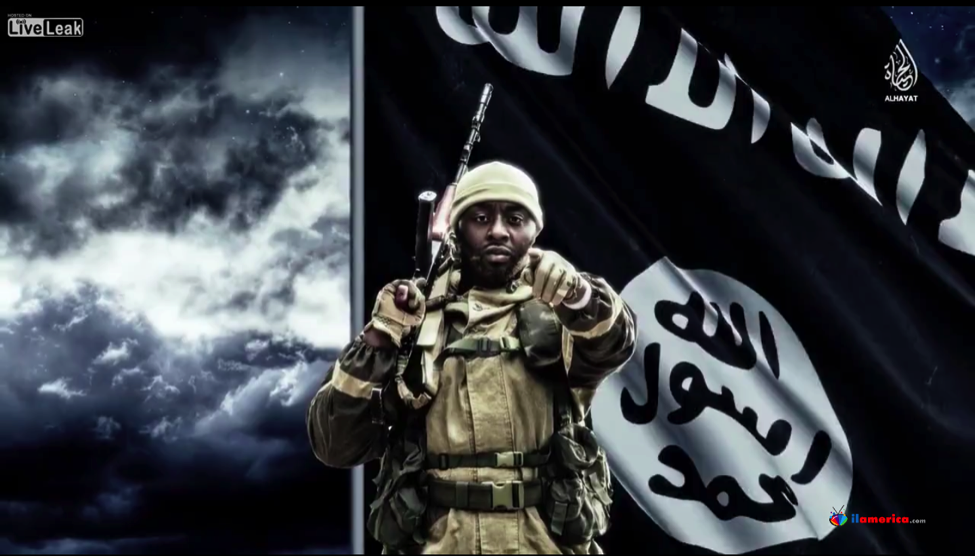Throughout his campaign for president of the United States, Republican nominee Donald Trump has time and time again denigrated Muslim communities living on American soil and abroad. Trump’s critics have underscored how promoting the prejudicial treatment of Muslims only helps to strengthen anti-American Islamist organizations. By targeting Muslims, the arguments go, Trump inadvertently validates claims made by groups such as Islamic State and al-Qaeda about the inevitable mistreatment of Muslims by the US, regardless of whether or not they are law-abiding citizens.
But while there is much to be said for this argument, jihadi groups’ propaganda strategies are not limited to profiting from anti-Muslim sentiments.
On November 24, 2015 IS issued a recruitment video aimed at Muslims living in the English speaking world titled “No Respite.” A striking element of the film is the expression of a muted sympathy for non-Muslim minority groups facing structural and personal prejudice in the US and Europe. In other words, IS – a group generally believed to champion religious differences above all else – makes an implicit appeal to racial differences, to non-Muslim minority groups living in the US and Europe. By appealing to notions of justice and historical persecution, the group attempts to engender violence in the US and Europe, issuing a call to arms to minorities in both regions. But this isn’t a strategy limited to IS; al-Shabab, al-Qaeda’s Somalia-based affiliate, has made similar appeals.
Analyzing the appeal of this IS recruitment video to members of largely non-Muslim minority groups, in comparison with similar invocations made by al-Shabab, yields a more nuanced understanding of the group’s ideology and how it animates its members and their worldviews.
The siren call of jihad
At a specific moment in the “No Respite” recruitment video, a voiceover declares, “For there is no honor to be found in the remnants of shirk (polytheism or idolatry) and nationalism, and no difference between an Arab and a non-Arab, or a black man and a white man, except through piety. This is the glory of faith that unites us.”
After Donald Trump proposed that the US ban Muslims from entering the country following the San Bernardino shooting, al-Shabab released a 51-minute long video highlighting the injustices experienced by black Americans and calling on them to join their Islamist movement. The video includes clips from speeches given by Malcolm X, as well as video footage from recent anti-police brutality protests across the country. A clip from a video by Anwar al-Awlaki, a famed preacher and al-Qaeda member who was the first US citizen to be targeted and killed by a US drone strike, features the man declaring, “Yesterday America was a land of slavery, segregation, lynching, and Ku Klux Klan. And tomorrow, it will be a land of religious discrimination and concentration camps. The West will eventually turn against its Muslim citizens.”
The IS and al-Shabab messages complement each other, expressing similar sentiments regarding prejudice faced by minorities either in the US, Europe, or both. IS expressly highlights how its particular brand of Islam ignores the differences that have haunted minorities in “The West” in an overt attempt to appeal to said minorities. Marginalized and discontented populations often provide fertile recruitment grounds for radicalism of all kinds. Referring to the distinction between a black man and a white man makes most sense to individuals living in places in which skin color has been the basis for political, social, and economic discrimination. Similarly, al-Shabab includes a clip of a preacher explicitly connecting the past experiences of Black Americans living in the US with what he claims will be the future experience of Muslims living in the US. Both assertions imply that the proper response to racial, ethnic, or religious prejudice is Islam, and in particular the interpretations of Islam favored by al-Shabab or IS.
How is the IS message different?
While racial discrimination has played a role in IS propaganda, the group’s message distinguishes it from other jihadi movements. It may seem appealing to conflate both groups’ messages with respect to minorities living in the United States or Europe, but an overview of an essay published in the 11th issue of Dabiq, the IS English-language magazine, in August 2015 reveals how IS differs from al-Shabab. The authors of the piece, entitled “Walā’ and Barā’ Versus American Racism,” write: “They [Muslims in the West] forego the concept of walā’ and barā’ [loyalty and disavowal for the cause of Allah], not bothering to educate their readers of the Muslim’s obligation to reject kufr [religious infidelity], separate himself from the kuffār, abandon their lands, harbor enmity and hatred towards them, and wage war against them until they submit to the truth” (Dabiq, Issue 11, p. 19). In short, IS invites non-Muslim victims of racism to move to its territory, and to completely abandon the US and Europe, instead of merely attacking them.

Islamic State use online propaganda to cultivate an image as a multi-racial group that welcomes all ‘true’ Muslims. [Source: Liveleak]
As the recruitment video mentioned is intended for a European and American audience, it makes sense for IS to locate and then exploit the sociopolitical dimensions of the “West” that dehumanize minorities. In asserting that there is “…no difference between an Arab and a non-Arab, or a black man and a white man, except through piety,” IS is expressly pushing an egalitarian message meant to underscore the decades of hatred, fear, and discrimination members of minority groups living in Europe and the United States were and are forced to experience.

Images such as this are used in IS propaganda to dispel any notions of their project being a purely Arab venture. [Source: Liveleak]
As of March 2016, approximately 6,000 Europeans have traveled to fight in Syria and Iraq, with the majority of them coming from France, Germany, and the UK.
Whereas al-Shabab seems content to encourage minorities to respond violently in their home countries to the prejudices they face there, IS makes migration to its territories a cornerstone of its ideology, calling on its supporters to join the “caliphate.” It is not enough to inflict harm – it must also grow, by prioritizing the development of its nation over the flexibility of its guerrilla forces.
Whether or not IS will continue to make similar appeals in the future is difficult to predict. After all, it has suffered major losses of territory to coalition forces, and it continues to do so. It remains to be seen whether or not its propaganda will evolve to better reflect its physical reality, but one thing will likely remain the same: its unrepentant and ceaseless call to action, whatever that will mean in the future.
